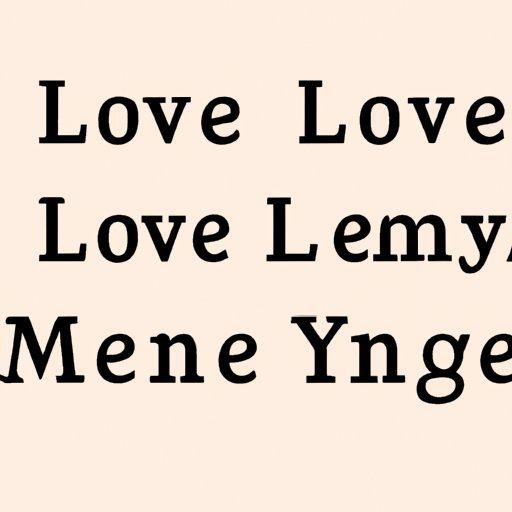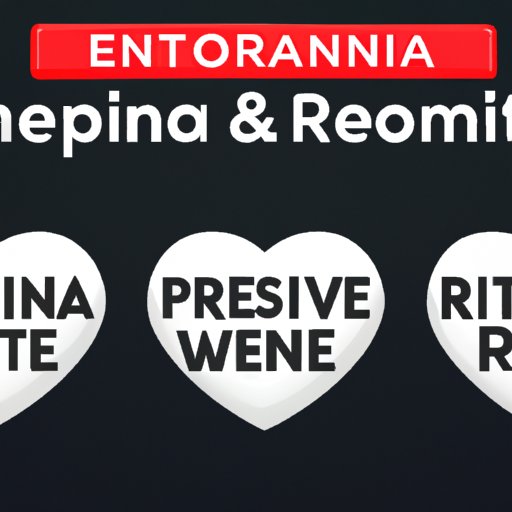
I. Introduction
The “Me Love You Long Time” meme is a viral phenomenon that has taken the internet by storm. The phrase, which originated from the movie Full Metal Jacket, has become a pop culture staple and is used to convey love, affection, or sexual attraction towards someone. While the appeal of the meme is understandable, it is essential to recognize the harm that it can cause to marginalized groups, specifically Asian Americans. This article will explore the history and cultural implications of the “Me Love You Long Time” meme, analyze the intersection of racism and humor, and provide actionable steps to combat problematic content in popular culture.
II. The History and Cultural Implications of the “Me Love You Long Time” Meme
The “Me Love You Long Time” meme’s origination is from the 1987 movie Full Metal Jacket. The film follows a group of U.S. Marines deployed to Vietnam during the Vietnam War and the interactions with a Vietnamese sex worker known as “Me So Horny.” The phrase used in the movie is a direct reference to the services that the character is offering, and it has since been co-opted to take a more romantic and sexual context in modern usage.
The sexual undertones that contribute to the prevalence of the “Me Love You Long Time” meme align with longstanding stereotypes about Asian women being passive, submissive, and sexually promiscuous. These stereotypes perpetuate the idea that Asian women are fetishized objects rather than complex individuals with agency and autonomy. The meme creates a dangerous illusion of sexual availability that contributes to the hyper-sexualization of Asian women.
III. The Intersection of Racism and Humor in the “Me Love You Long Time” Meme
The “Me Love You Long Time” meme is yet another example of how humor is utilized as a tool to uphold systematic oppression towards minority groups. Using derogatory language or offensive jokes under the guise of harmless humor downplays the harm perpetuated towards marginalized individuals and deflects responsibility for perpetuating oppressive speech.
The meme is not an exception to the rule of using humor as a form of oppression. Instead, it serves to reinforce negative stereotypes and perpetuate the marginalization of Asian Americans. By humorously referring to Asian Americans as exotic, submissive, and passive objects, the meme assumes that Asian Americans play a lesser role in the social hierarchy.

IV. Why the “Me Love You Long Time” Meme Needs to Be Retired
The use of the “Me Love You Long Time” meme is harmful to the Asian American community and is a form of perpetuating prejudice and stereotypes. It is necessary to understand the personal impact of this meme and why it needs to be retired. Stories from the Asian American community reveal the significance of this meme on an individual level. Several individuals have recounted feeling belittled, dehumanized, and othered when they see this meme used. The lives of Asian Americans should not be reduced to harmful, dismissive jokes in Internet culture.
The implications of continuing to use the “Me Love You Long Time” meme cannot be ignored. The meme reinforces the idea that Asian Americans exist solely to serve and please others, trivialize their experiences, and allow for the perpetuation of harmful stereotypes and microaggressions. It is crucial to recognize the power of language and how it can contribute to the erosion of marginalized communities if left unchecked.
V. When Memes Go Too Far: The Controversy Surrounding the “Me Love You Long Time” Meme
The “Me Love You Long Time” meme has a troubling history of being co-opted for racist and sexist purposes. There have been numerous examples of the meme being used inappropriately or being associated with racist ideologies. Social media has played a factor in the meme’s propagation, and its ease of sharing makes the internet a breeding ground for problematic language.
The controversy surrounding the meme highlights the problematic nature of offending a community while simultaneously dismissing them. The use of this meme is especially harmful due to the way Asian Americans are viewed in the mainstream; their experiences with racism and prejudice are often ignored or invalidated.
VI. The “Me Love You Long Time” Meme and Its Role in the Sex Work Industry
The origins of the “Me Love You Long Time” phrase come from a scene in Full Metal Jacket in which a Vietnamese sex worker negotiates the price for services to a group of U.S. soldiers. The use of this phrase adds another layer of complexity to the meme’s history and highlights the intersection of racism and the sex work industry. The co-optation of this phrase within the sex work industry further perpetuates the dehumanization of Asian women and conflates their identities with a profession that society often stigmatizes.
VII. The Lingering Legacy of the “Me Love You Long Time” Line
The “Me Love You Long Time” meme has permeated popular culture beyond internet meme culture. It has been referenced in movies, music, and television shows. The longevity of this meme indicates how stereotypes surrounding Asian Americans continue to be perpetuated through mainstream media. The meme’s continued usage even after being called out for its problematic history highlights the struggle for marginalized groups to be heard, seen, and valued. It is essential to recognize the cost of shifting to different mediums as these prejudices always have real-life consequences.
VIII. Conclusion
In conclusion, the “Me Love You Long Time” meme is problematic and perpetuates harmful stereotypes and prejudices against Asian Americans. Understanding the intersectional issues that this meme embodies is necessary to combat larger systemic issues at hand. It is essential to recognize that using humor as a form of oppression is a way to uphold systemic problems towards marginalized groups. We need to acknowledge how microaggressions can do harm and what we can do to intervene. We should actively choose to fight these instances when they arise and support marginalized communities when these actions are brought to light.




